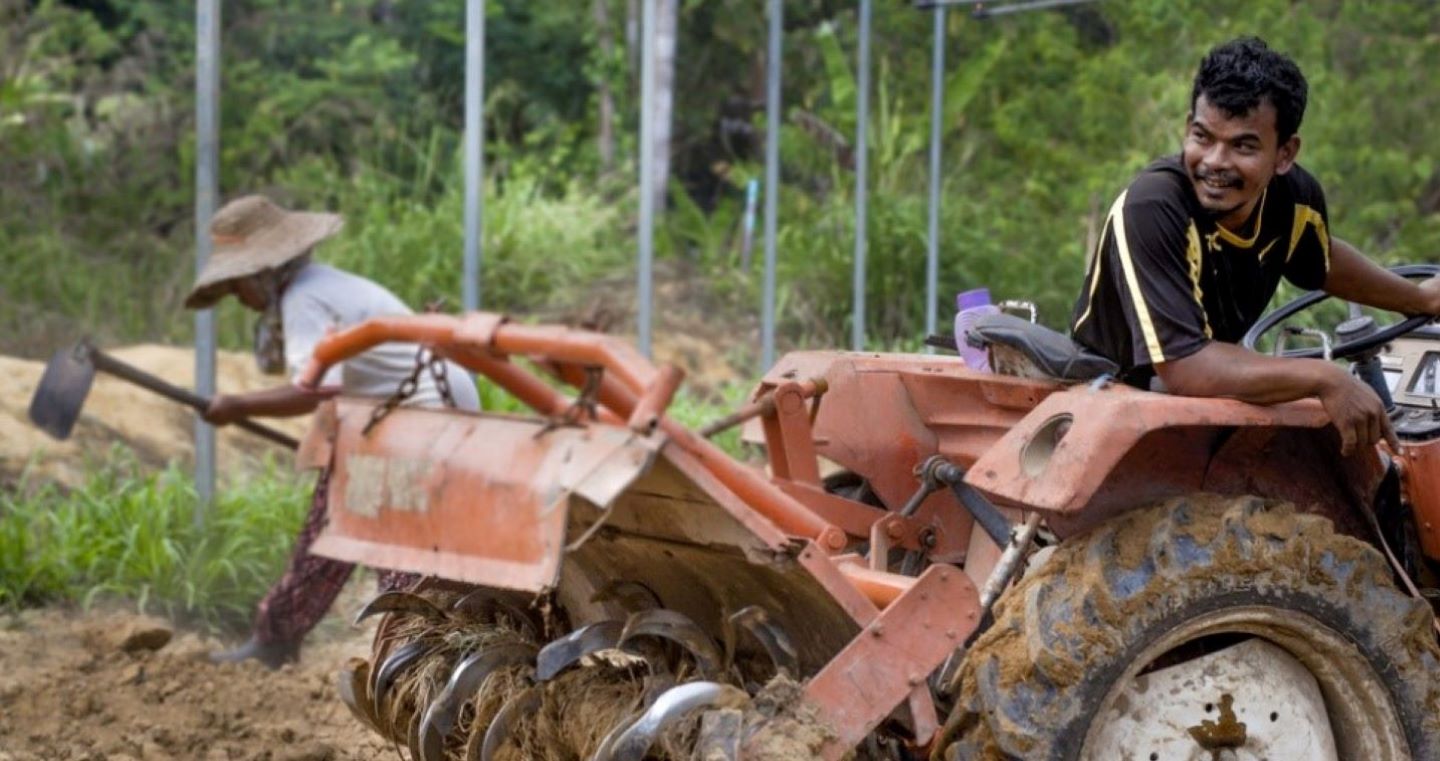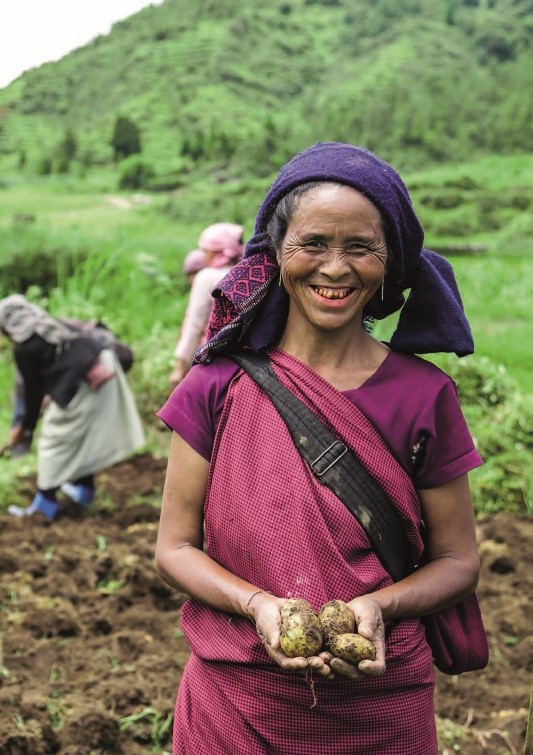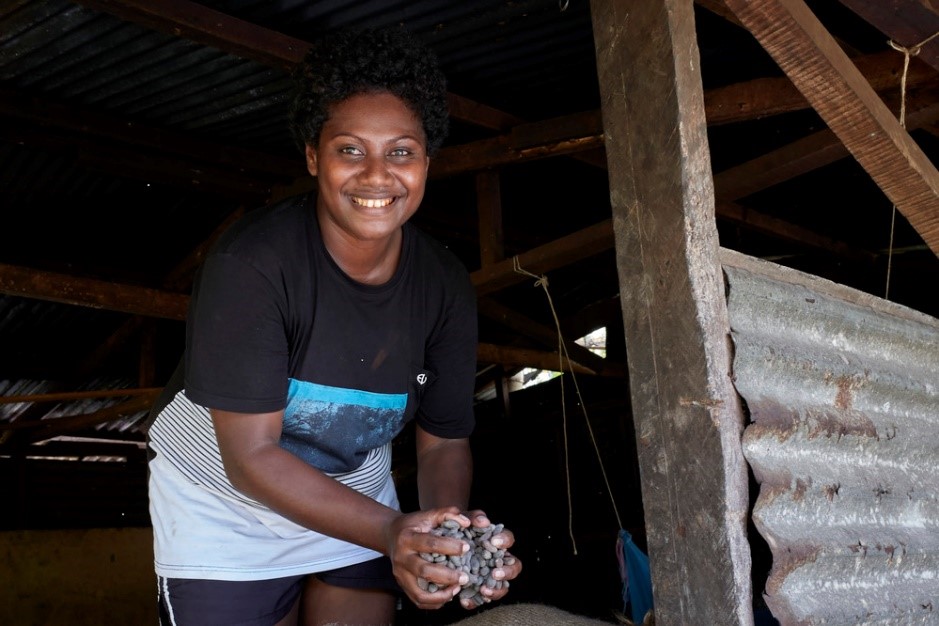How IFAD worked with governments in Asia to build rural resilience during COVID-19
IFAD Asset Request Portlet
Asset Publisher
How IFAD worked with governments in Asia to build rural resilience during COVID-19
Estimated reading time: 3 minutes
The COVID-19 pandemic pushed up to 80 million people in Asia into extreme poverty. Rural smallholder farmers, women, youth and informal workers were amongst those worst hit as agriculture supply chains were disrupted.
Governments across Asia and the Pacific had to respond quickly as incomes fell and food security was threatened. IFAD worked with them to ensure vulnerable rural people got the support they needed.
China
China’s government strengthened rural e-commerce and set up a Green Channel to bring agricultural products from farms to markets. This kept rural economies on track while meeting demand for nutritious foods.
IFAD helped build the technological and organizational skills of rural people in Ningxia and Sichuan through the IPRAD–SN programme.
Find out more in IFAD’s report on the Impact of the COVID-19 pandemic on the rural economy in China.

of the Farmers' Business School. © Eborlang Tariang
(Knowledge Management, Megha-LAMP)
India
India’s government introduced a safety net for those most affected by lockdowns, while the National Bank for Agriculture and Rural Development guaranteed access to credit for small-scale farmers. An employment guarantee scheme helped reduce rural unemployment and sustained livelihoods.
IFAD’s Livelihoods and Access to Markets Project (LAMP), which works with tribal communities in Meghalaya, provided financial services during difficult times. Integrated Village Cooperative Societies distributed rations and made food accessible at reasonable prices. They supplied animal feed, set up processing facilities and marketed agriculture produce.
Read how LAMP converged with federal and state rural development schemes during COVID-19.
South-East Asia
Across South-East Asia, with young people’s employment prospects were badly hit by COVID-19, governments sought to protect jobs and create social safety nets.
In Malaysia, the government created a dedicated fund for upskilling 200,000 youth and unemployed persons.
Indonesia’s government adapted an existing training programme to support and reskill laid-off workers, informal workers and micro- and small business owners in the heavily-impacted tourism sector, while the IFAD-supported YESS project helped rural youth build livelihoods through entrepreneurship and employment.
In both Malaysia and Indonesia, governments provided financial support to businesses and families in the form of cash transfers, tax deferments and liquidity support.
In Viet Nam, IFAD supported farmers’ organisations through the Assuring Resiliency of Family Farmers amidst COVID-19 (ARISE-Farmers) project which sustained organizations’ efforts to provide services to their members during the pandemic and prepare for a post-COVID world.
Learn more about how the COVID-19 pandemic impacted on the poorest rural people in the Asia Pacific region, and what we learned from how countries coped.
Pacific Islands

Governments sought to ensure the poorest rural-dwellers could access adequate, nutritious food during the pandemic through various measures, such as promoting home gardening, distributing food rations and establishing food banks. In Fiji and Samoa they developed farm support packages to boost production.
IFAD established the Pacific Islands Rural and Agriculture Stimulus Facility (PIRAS) to support economic recovery. The facility provided inputs, technology and training to help rural households in Fiji, Samoa, the Solomon Islands, Tonga and Vanuatu enhance their incomes, food security and nutrition.
Learn more about Reinforcing Pacific food systems for COVID-19 recovery.
As we learn to live with COVID, poor rural people in Asia and the Pacific are facing new challenges to their livelihoods and food security. As inflations rises, they are struggling to make ends meet, while being particularly vulnerable to the impacts of climate change.
At IFAD, we’re studying what worked during the pandemic so we can use these lessons to build resilience for the next crisis.
Publication date: 05 August 2022